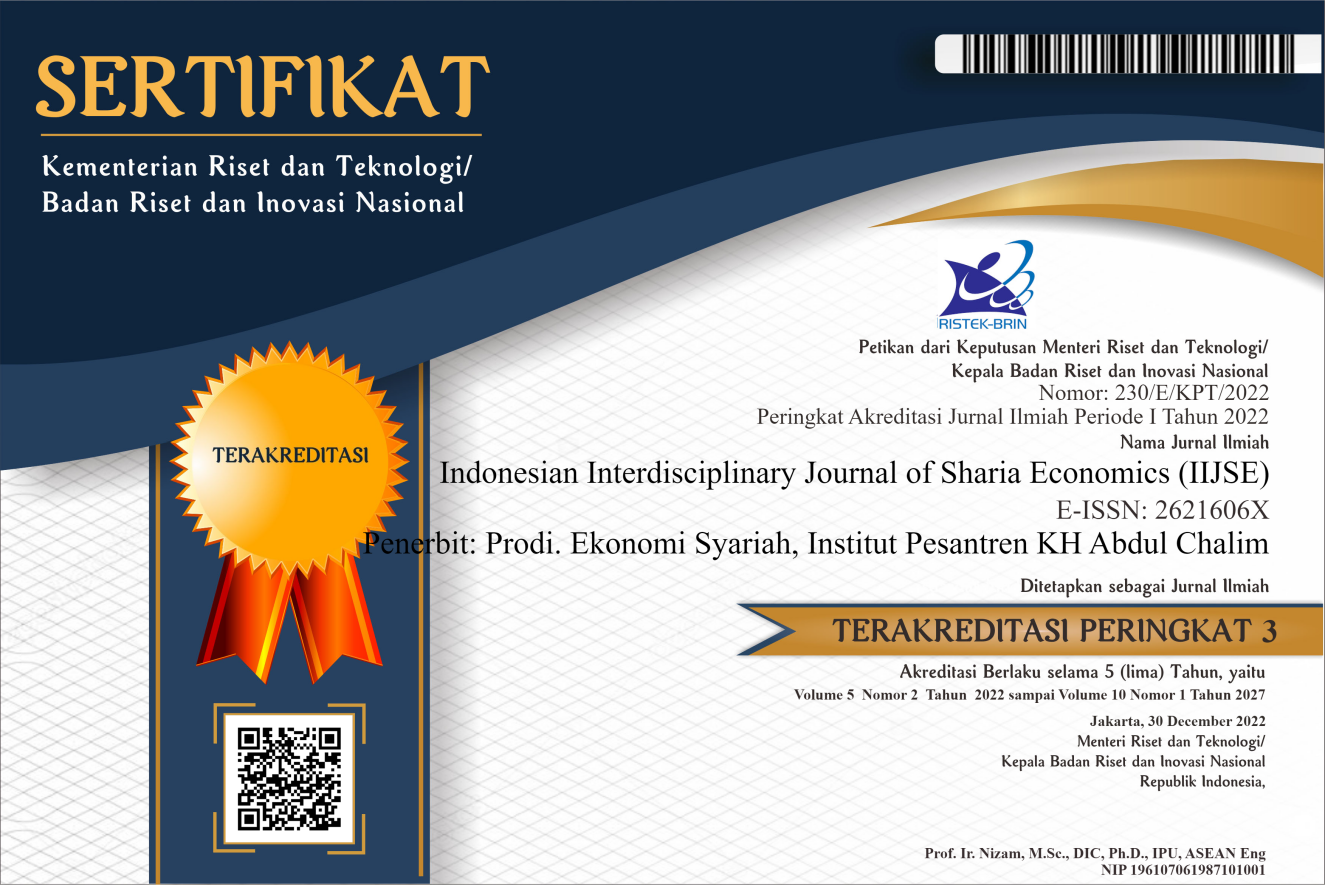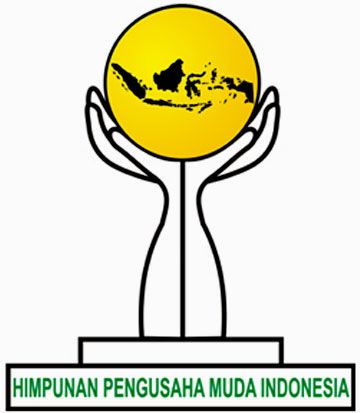The Use of E-commerce and QRIS as Digital Payment Solutions to Enhance Sales Performance in MSMEs in West Java
Abstract
This study aims to examine the impact of digitalization on the performance of MSMEs, focusing on how the adoption of e-commerce and QRIS affects the sales performance of MSMEs in West Java through competitive advantage. The study also explores the potential of MSMEs in the current era of digitalization and provides recommendations based on the obtained results to support the growth of MSMEs on a national scale. To achieve these objectives, the study employs a quantitative analysis method. The quantitative component focuses on statistical analysis of the e-commerce and QRIS utilization among West Java MSMEs, MSMEs' sales performance, and MSMEs' competitive advantages in digitally active MSMEs. The analysis method in this study uses non-probability sampling and collected data from 400 MSME owners/actors in West Java. The data was collected using a survey and conducted in a non-contrived setting. This study uses SPSS version 29 for data processing, including validity testing, reliability testing, descriptive analysis, and three classical assumption tests, including normality, multicollinearity, and heteroscedasticity. In this study, a t-test, path analysis, and Sobel test were carried out on hypothesis testing. The study highlights that MSMEs that have successfully integrated digital technologies experienced improved business performance, including increased sales, expanded customer base, and improved operational efficiency. This study also proves the mediating role of competitive advantage which significantly and positively affects sales growth in MSMEs. The results of this study indicate the influence of partial mediation, namely complementary mediation.
Downloads
References
Ahuja, V., Gera, R., & Chadha, P. (2021). Mobile shopping apps adoption: a systematic literature review. International Journal of Electronic Business, 16(3), 239. https://doi.org/10.1504/IJEB.2021.10039521
Andonov, A., P. Dimitrov, G., & Totev, V. (2021). Impact of E-commerce on Business Performance. TEM Journal, 1558–1564. https://doi.org/10.18421/TEM104-09
Anggadwita, G., Martini, E., Hendayani, R., & Kamil, M. R. (2021). The Role of Technology and Innovation Capabilities in Achieving Business Resilience of MSMEs During Covid-19: Empirical Study. 2021 9th International Conference on Information and Communication Technology (ICoICT), 1–6. https://doi.org/10.1109/ICoICT52021.2021.9527464
Duch-Brown, N., Grzybowski, L., Romahn, A., & Verboven, F. (2017). The impact of online sales on consumers and firms. Evidence from consumer electronics. International Journal of Industrial Organization, 52, 30–62. https://doi.org/10.1016/j.ijindorg.2017.01.009
GoodStats Data. (n.d.). 27 Juta UMKM Telah Go Digital Hingga 2023. Data.Goodstats.Id.
Graupner, E., Trenz, M., & Maedche, A. (2021). When does digital matter Analysing customers preference for digital processes. International Journal of Electronic Business, 16(2), 1. https://doi.org/10.1504/IJEB.2021.10038071
Hair, J. F., Hult, G. T. M., Ringle, C. M., Sarstedt, M., Danks, N. P., & Ray, S. (2021). Partial Least Squares Structural Equation Modeling (PLS-SEM) Using R. Springer International Publishing. https://doi.org/10.1007/978-3-030-80519-7
Irwan Hariandi, M. S., Gumanti, T. A., & Wahyudi, E. (2019). E-Commerce, Competitive Advantage And Business Performance Of Banyuwangi Small And Medium-Sized Enterprises. INTERNATIONAL JOURNAL OF SCIENTIFIC & TECHNOLOGY RESEARCH, 8, 8. www.ijstr.org
Jafari Sadeghi, V., & Biancone, P. Pietro. (2018). How micro, small and medium-sized enterprises are driven outward the superior international trade performance? A multidimensional study on Italian food sector. Research in International Business and Finance, 45, 597–606. https://doi.org/10.1016/j.ribaf.2017.07.136
Kiselicki, M., Kirovska, Z., Josimovski, S., & Anastasovski, M. (2022). E-Commerce as a Revenue Generator for Small and Medium Companies in Developing Countries. Economics and Culture, 19(2), 47–56. https://doi.org/10.2478/jec-2022-0015
KWABENA, G. Y., MEI, Q., GHUMRO, T. H., LI, W., & ERUSALKINA, D. (2021). Effects of a Technological-Organizational-Environmental Factor on the Adoption of the Mobile Payment System. Journal of Asian Finance, Economics and Business, 8(2), 329–338. https://doi.org/10.13106/jafeb.2021.vol8.no2.0329
Nanang Wahyudin, Novita Herlissha, Christianingrum, & Dwi Rizki Aldiesi. (2022). The Utilization of E-Commerce and QRIS as Digital Payment Tools to Improve Sales Performance through Competitive Advantage in MSME. Journal of Consumer Sciences, 7(2), 134–147. https://doi.org/10.29244/jcs.7.2.134-147
Nelson, M. R. (2001). Sustainable Competitive Advantage from Information Technology. In Strategic Information Technology (pp. 40–55). IGI Global. https://doi.org/10.4018/978-1-878289-87-2.ch002
Noor, M., & Shariff, M. (2022). Competitive Advantage as Mediating Variable on the Relationship Between Innovation and Business Performance on SMES in Purwokerto Province. Saudi Journal of Business and Management Studies.
Octavia, A., Indrawijaya, S., Sriayudha, Y., . H., Hasbullah, H., & . A. (2020). Impact on E-Commerce Adoption on Entrepreneurial Orientation and Market Orientation in Business Performance of SMEs. Asian Economic and Financial Review, 10(5), 516–525. https://doi.org/10.18488/journal.aefr.2020.105.516.525
Pal, P., Sethi, G., Nath, A., & Swami, S. (2008). Towards cleaner technologies in small and micro enterprises: a process-based case study of foundry industry in India. Journal of Cleaner Production, 16(12), 1264–1274. https://doi.org/10.1016/j.jclepro.2007.06.021
Santoso, W., Sitorus, P. M., Batunanggar, S., Krisanti, F. T., Anggadwita, G., & Alamsyah, A. (2021). Talent mapping: a strategic approach toward digitalization initiatives in the banking and financial technology (FinTech) industry in Indonesia. Journal of Science and Technology Policy Management, 12(3), 399–420. https://doi.org/10.1108/JSTPM-04-2020-0075
Sari, P. K., Nurshabrina, N., & Candiwan. (2016). Factor analysis on information security management in higher education institutions. 2016 4th International Conference on Cyber and IT Service Management, 1–5. https://doi.org/10.1109/CITSM.2016.7577518
Sugiyono. (2022). Metode Penelitian Manajemen: Edisi Revisi. Alfabeta.
Sulistyaningsih, H., & Dr. Hanggraeni, D. (2021). The Impact of Technological, Organisational, Environmental Factors on The Adoption of QR Code Indonesian Standard and Micro Small Medium Enterprise Performance. Turkish Journal of Computer and Mathematics Education (TURCOMAT), 12(14).
TAMBUNAN, T. T. H. (2020). Evidence on the use of internet for businesses by MSEs in a Developing Country. The Indonesian case. Anais Da Academia Brasileira de Ciências, 92(1). https://doi.org/10.1590/0001-3765202020180555
Udayana, A. A. G. B., Fatmawaty, A. S., Makbul, Y., Priowirjanto, E. S., Ani, L. S., Siswanto, E., Susanti, W., & Andriani, S. (2024). Investigating the role of e-commerce application and digital marketing implementation on the financial and sustainability performance: An empirical study on Indonesian SMEs,. International Journal of Data and Network Science, 8(1), 167–178. https://doi.org/10.5267/j.ijdns.2023.10.007
Wahyuni, S., Widodo, J., Zulianto, M., & Islami, N. N. (2020). The analysis of e-commerce utilization in Micro, Small and Medium Enterprises (MSMEs) at Jember. IOP Conference Series: Earth and Environmental Science, 485(1), 012037. https://doi.org/10.1088/1755-1315/485/1/012037
Wardhani, R. A., Arkeman, Y., & Ermawati, W. J. (2023). The Impact of Quick Response Adoption of Payment Code on MSMEs’ Financial Performance in Indonesia. International Journal of Social Service and Research, 3(3), 869–878. https://doi.org/10.46799/ijssr.v3i3.294
Zhou, Q., Gao, P., & Chimhowu, A. (2019). ICTs in the transformation of rural enterprises in China: A multi-layer perspective. Technological Forecasting and Social Change, 145, 12–23. https://doi.org/10.1016/j.techfore.2019.04.026.
Copyright (c) 2025 Darlene Gabriella S., Lia Yuldinawati

This work is licensed under a Creative Commons Attribution-ShareAlike 4.0 International License.
Authors who publish with this journal agree to the following terms:
- Authors retain copyright and grant the journal right of first publication with the work simultaneously licensed under a Creative Commons Attribution License that allows others to share the work with an acknowledgment of the work's authorship and initial publication in this journal.
- Authors are able to enter into separate, additional contractual arrangements for the non-exclusive distribution of the journal's published version of the work (e.g., post it to an institutional repository or publish it in a book), with an acknowledgment of its initial publication in this journal.
- Authors are permitted and encouraged to post their work online (e.g., in institutional repositories or on their website) prior to and during the submission process, as it can lead to productive exchanges, as well as earlier and greater citation of published work.


















